Mosquitoes are the most prolific in the warm moist heat of summer. As happy as everyone is to see the pests go away for the colder months, many people wonder what happens to mosquitoes during the winter. How is it the little biters can be so unrelentingly present and annoying all summer long and then just vanish without a trace as soon as the weather turns cold? The short answer is, simply put, mosquitoes have evolved to endure cold weather and have been around since before the last ice age. The long answer is more complex.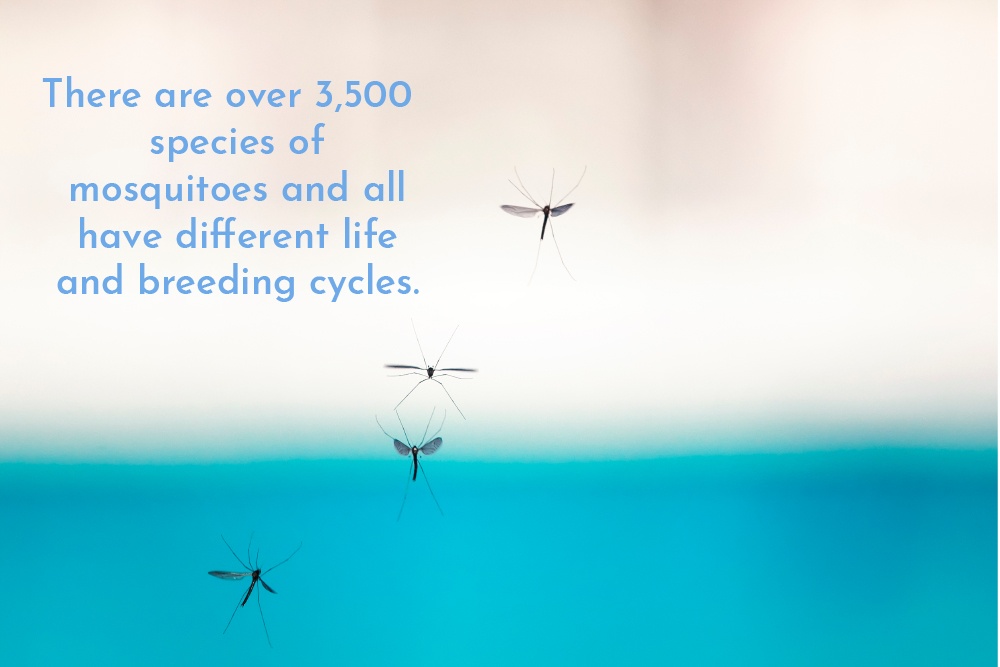
There are over 3,500 species of mosquitoes and all have different life and breeding cycles. Females live roughly from six to eight weeks and male mosquitoes only live up to 10 days and die after mating. While some of the little biters die off, most of the pests just go dormant for the winter once the temperatures dip.
Mosquitoes become inactive and some species die when the mercury drops below 50 degrees Fahrenheit. Mosquitoes are most active in temperatures ranging from 50 to 95 degrees Fahrenheit and function best in temperatures above 60 degrees Fahrenheit. In the dryer and colder months, mosquitoes go into “diapause,” a dormant hibernation-like state, to survive harsh environmental conditions when they essentially push the pause button on their life cycle for a few months.
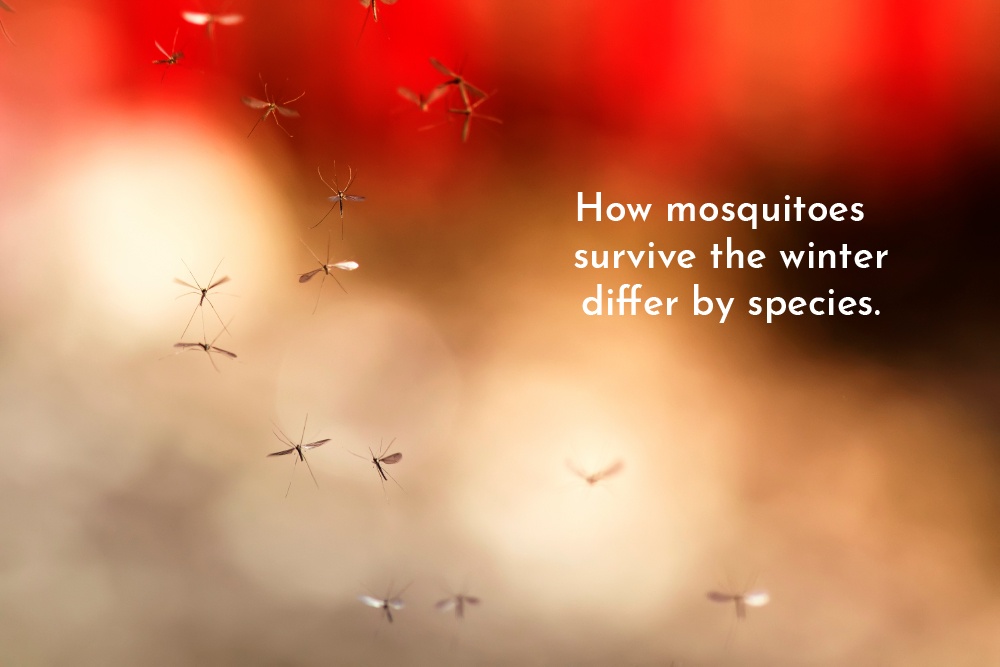
How mosquitoes survive the winter differ by species. Adult females will deposit their last clutch of eggs in as little as half an inch of water. Some hide in holes in trees and the ground and go into diapause to wait out the winter. Other mosquitoes, such as those responsible for transmitting the Zika virus, lay their eggs in freezing water and then die off shortly thereafter. The eggs also enter a state of diapause and suspend development during the cold months and are not affected by freezing temperatures. Then, in the late spring, when the weather turns wet and the water warms up enough the females wake up, the dormant eggs hatch, and the little blood suckers become actively annoying once again. The life cycle of all mosquitoes consists of the following four stages:
- Eggs hatch within 48 hours in warm conditions and become larva.
- The larva turns into a pupa within 7-10 days.
- Pupa become adults. Some species of mosquitoes only live for a few days, whereas other species can live for several months.
- Adult females lay eggs in any area where there are bodies of stagnant water.
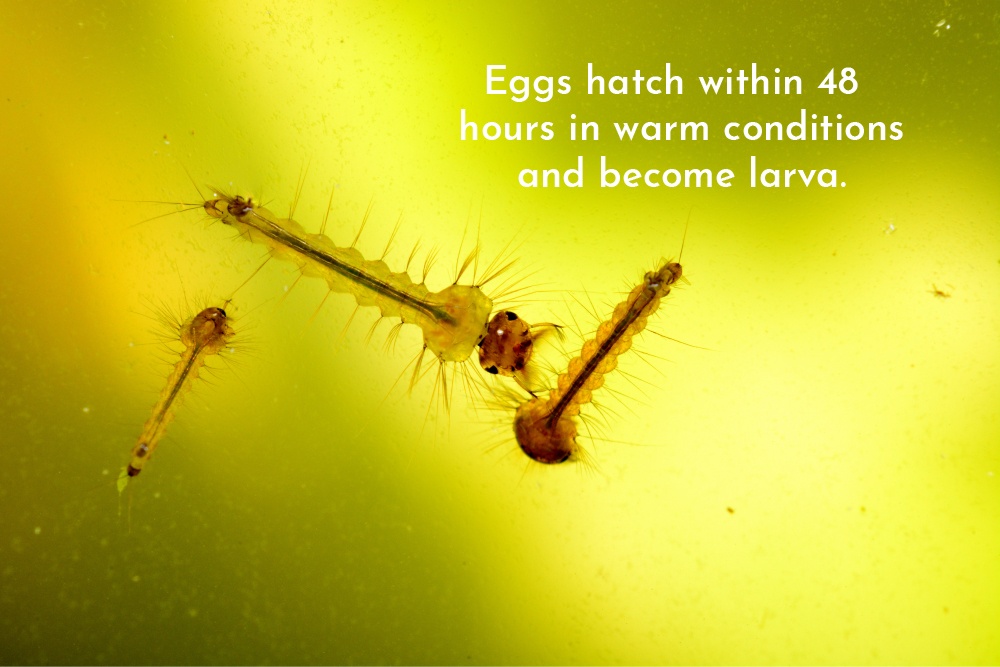
Mosquitoes breed roughly 30 hours after becoming adults. Once a female mosquito is bred she can lay eggs for the rest of her life. She will produce anywhere from 50 to 500 eggs in her first brood and some females can produce as many as 10 broods over their lifetime. Researchers have found that mosquito eggs can survive for many years waiting for the right conditions to hatch. Mosquitoes can and will nest indoors during the winter and can breed in damp areas like basements or garages.
As surprising as it may be, it should be noted that it is only the female mosquito that bite mammals as she requires the protein in the blood to produce eggs. Male mosquitoes do not bite, but feed on the nectar of flowers, just like bees. Female mosquitoes can sense the weather changing, just as people do, and prepare for winter. The female will mate for the last time before she goes dormant for the winter. At this time she will stop feeding on the blood of mammals and eat the nectar of plants, like the males, to store fat to prepare for dormancy.
Warmer and more humid climates speed up the mosquitoes’ life cycle and thereby increase their potential for breeding. Mosquitoes need moisture and humidity to breed and do not typically exist in dryer climates, such as the desert. Conversely, large populations of mosquitoes exist in hot, humid areas with large standing bodies of freshwater, such as swaps and deltas. This means hot and humid areas, like Florida, have a very high mosquito population, and areas of low humidity, like the Rocky Mountains, typically see much lower mosquito numbers. The exception to this is desert areas, like Arizona, that see heavy monsoon rains during the summer months.
Mosquitoes target their prey by sensing the carbon dioxide mammals exhale during respiration. Mosquitoes target humans by sensing the over 320 chemical odors they emit. These include those produced by sweat, folic acid, cholesterol, lotions, and perfumes. Mosquitoes also have heat sensors around their mouths that let them detect warm blooded creatures.
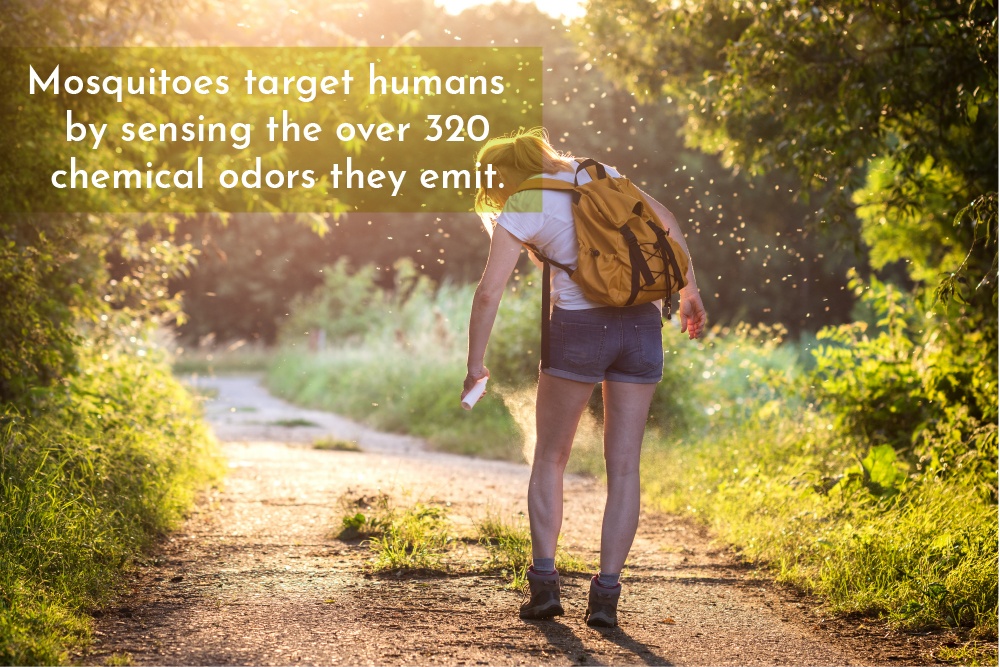
While the blood suckers function best in temperatures above 60 degrees Fahrenheit like other insects mosquitoes are cold blooded and can therefore adjust their body temperature to match their surroundings. Most mosquitoes survive the cold months in their embryonic stage, protected under ice and snow. Some species, like the Anopheles, Culex, and Culiseta mosquitoes, don’t mate until the fall and the females then go into in animal burrows, basements, and other protected areas and become dormant. A third category of mosquitoes spend the winter in their larva stage buried in the mud in swamps. Mosquitoes will sometimes become active during warm periods in the winter if their nests are disturbed.
Preventing Mosquito Bites
Mosquito bites usually cause itching, often result in pain, and sometimes transmit diseases that can be life-threatening and even fatal. While these can all be treated, the best way to deal with mosquitoes is to prevent the little suckers from biting you in the first place by using bug spray and other measures. Here are some steps you can take as a mosquito deterrent to eliminate or at least reduce the chance of contributing to the mosquito’s life cycle:
- Mosquitoes can breed in the smallest amount of standing water, as little as a bottle-cap full. Inspect all areas of your property for any places or objects that can hold water where female mosquitoes will lay their eggs. This includes depressions in the ground, tarps, old tires, and anything else that can collect water.
- Clean out rain gutters regularly to keep them from getting clogged with leaves and trap standing water.
- Drill drainage holes in the bottom of objects that aren’t meant to hold water, such as wheel barrels and tire swings.
- Change water in birdbaths every two to three days so it does not become stagnant.
- Place the lids tightly on trash cans or turn the cans upside down if they do not have lids.
- Add fish that eat mosquitoes to ponds.
- Keep outside lights turned off so as not to discourage bats from coming to feed on mosquitoes.
- Stop mosquitoes from getting in the house by keeping any doors and windows that do not have screens closed.
- Wear loose-fitting long pants and long-sleeved shirts to protect yourself from bites. Dark colors, like red, blue, and black, attract mosquitoes and tight-fitting clothing allows the mosquito to bite through the fabric.
- Stay inside after dark, if possible, when mosquitoes are most active.
- Apply a good mosquito repellent whenever venturing outside and hikers should use a good backpacking bug spray. For people who have concerns about using strong chemicals, like DEET, there are preparations that use ingredients that are not as harsh. These include lemon-eucalyptus oil and picaridin. PROVEN makes a full line of picaridin bug repellent that the CDC has concluded is safe for everyone to use, including pregnant women and infants and provides both mosquito and tick protection.
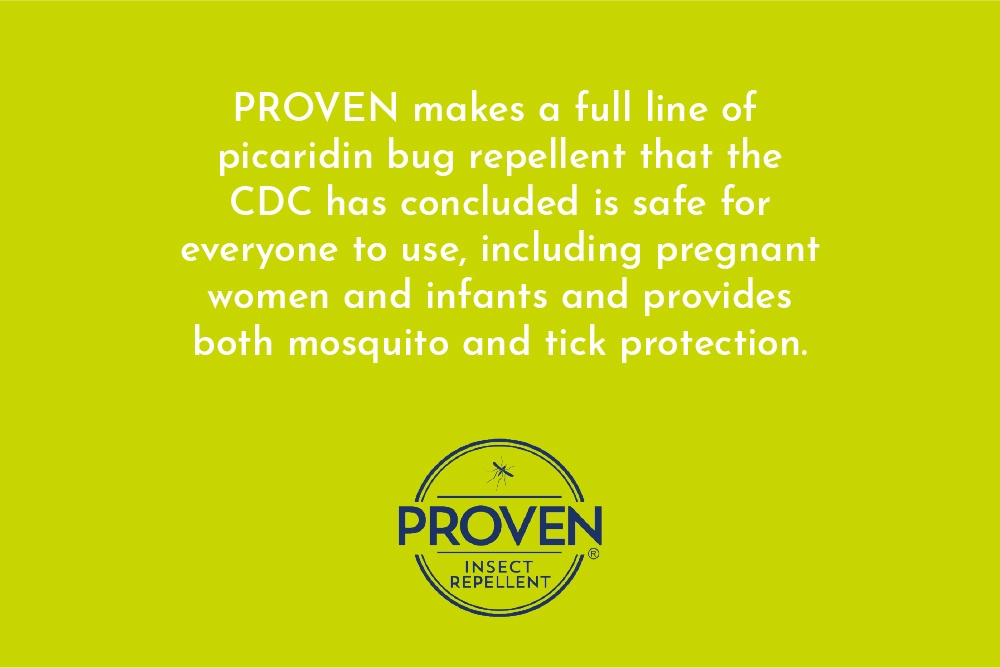
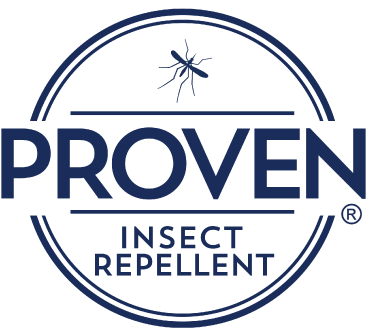
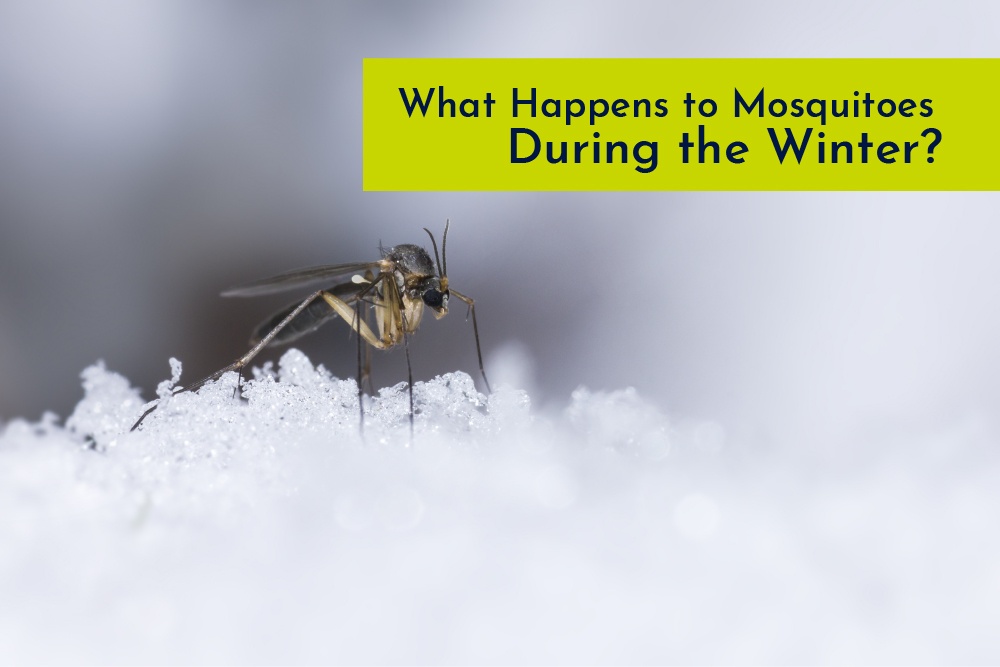
Recent Comments